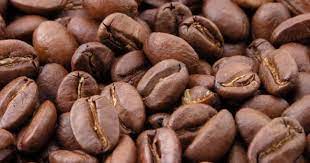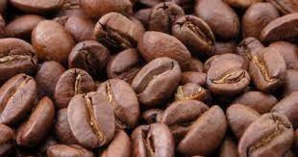Coffee, sugarcane and orange crops in Brazil were threatened with frost as temperatures in the country dropped on Thursday – even with a rare snowfall overnight in some places, as a polar air mass moved toward the center-south of the country which is a global powerhouse for agricultural produce.
International prices for coffee and sugar shot up already on Friday because of unusually cold weather in Brazil with a Friday forecast predicting the day to be coldest for the year, according to Marco Antonio dos Santos, a partner at weather consultancy firm Rural Clima.
With the wave of cold air marching further north in the country, there can be unusual cold temperatures in the coming days in the south of Goiás and the south of Mato Grosso do Sul, states where farmers grow crops like corn, said dos Santos in a report on Thursday.
"With the polar air mass strengthening, it is getting even colder in most of the agricultural producing regions of center-south Brazil," Santos said. "As such, the chances of frosts in coffee, sugarcane and orange areas increased dramatically."
There was unusual snow and cold rains in at least 13 cities on Wednesday in Brazil's southernmost state of Rio Grande do Sul because of the sudden cold wave.
Tourists and locals were seen on local television images taking photos and playing in the snow in the town of Sao Francisco de Paula as the temperature there dropped to below zero.
There can be freezing temperatures in Sao Paulo and Minas Gerais, which are major producers of sugar, citrus and coffee, if the polar air mass were to move over these regions.
Concerns of a weak harvest in Brazil were raised in global markets because of the extreme weather. Brazil is a major global exporter of agricultural commodities.
A five month high was hit in raw sugar futures on ICE on Thursday with investors choosing to price in the effects of the cold front in the largest producer of the world.
About 15 to 30 per cent of the cane crop had already been hit by frosts and therefore there will likely be lower production of the produce, said agriculture federation FAESP in the main sugar belt Sao Paulo state last week.
Anticipating a likely fall in production of sugar cane in Brazil, buyers were prompted to secure supplies in advance resulting in Indian traders of sugar signing sugar export contracts five months ahead of shipments for the first time.
Earlier this week, the price of Arabica coffee touched a nearly seven-year high as the crop in Brazil was affected by the unusually cold weather. Brazil is the top producer of coffee in the world. Companies are set to pass on the higher costs to customers.
150,000 to 200,000 hectares (370,000-490,000 acres), equating to about 11 per cent of the country's total arabica crop area, had been affected by last week's frosts alone, according to preliminary estimates from the Brazilian government.
"No one really knows the depth of damage undertaken," said coffee exporter Comexim, which estimated a 13% loss on next year's production at the Cerrado region in top coffee growing state Minas Gerais.
(Source:www.reuters.com)
International prices for coffee and sugar shot up already on Friday because of unusually cold weather in Brazil with a Friday forecast predicting the day to be coldest for the year, according to Marco Antonio dos Santos, a partner at weather consultancy firm Rural Clima.
With the wave of cold air marching further north in the country, there can be unusual cold temperatures in the coming days in the south of Goiás and the south of Mato Grosso do Sul, states where farmers grow crops like corn, said dos Santos in a report on Thursday.
"With the polar air mass strengthening, it is getting even colder in most of the agricultural producing regions of center-south Brazil," Santos said. "As such, the chances of frosts in coffee, sugarcane and orange areas increased dramatically."
There was unusual snow and cold rains in at least 13 cities on Wednesday in Brazil's southernmost state of Rio Grande do Sul because of the sudden cold wave.
Tourists and locals were seen on local television images taking photos and playing in the snow in the town of Sao Francisco de Paula as the temperature there dropped to below zero.
There can be freezing temperatures in Sao Paulo and Minas Gerais, which are major producers of sugar, citrus and coffee, if the polar air mass were to move over these regions.
Concerns of a weak harvest in Brazil were raised in global markets because of the extreme weather. Brazil is a major global exporter of agricultural commodities.
A five month high was hit in raw sugar futures on ICE on Thursday with investors choosing to price in the effects of the cold front in the largest producer of the world.
About 15 to 30 per cent of the cane crop had already been hit by frosts and therefore there will likely be lower production of the produce, said agriculture federation FAESP in the main sugar belt Sao Paulo state last week.
Anticipating a likely fall in production of sugar cane in Brazil, buyers were prompted to secure supplies in advance resulting in Indian traders of sugar signing sugar export contracts five months ahead of shipments for the first time.
Earlier this week, the price of Arabica coffee touched a nearly seven-year high as the crop in Brazil was affected by the unusually cold weather. Brazil is the top producer of coffee in the world. Companies are set to pass on the higher costs to customers.
150,000 to 200,000 hectares (370,000-490,000 acres), equating to about 11 per cent of the country's total arabica crop area, had been affected by last week's frosts alone, according to preliminary estimates from the Brazilian government.
"No one really knows the depth of damage undertaken," said coffee exporter Comexim, which estimated a 13% loss on next year's production at the Cerrado region in top coffee growing state Minas Gerais.
(Source:www.reuters.com)






